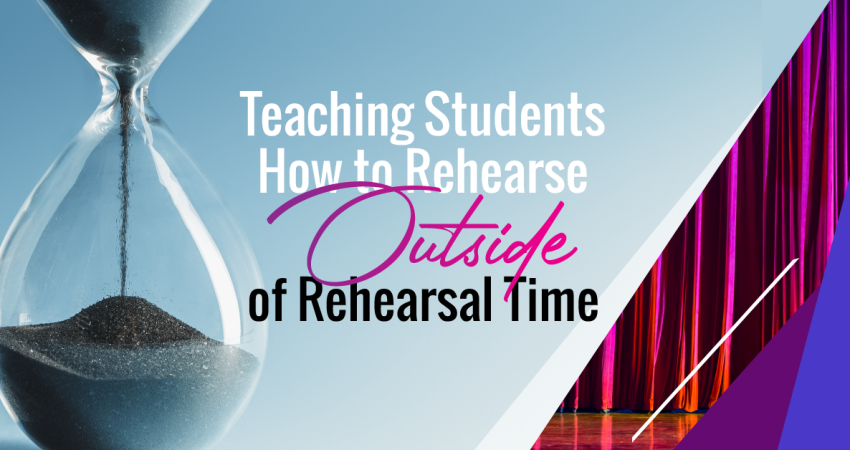One of the biggest predictors of a student’s success in theater and their school productions is whether or not they work on their own outside of school rehearsal hours. Whether they like it or not, students can’t expect to just practice during rehearsals and be good. They have to practice on their own, outside of rehearsals, or they just won’t get it.
It is so obvious to the teachers and artistic staff that the students have put to work that they are just looking for. Students who rehearse alone are calmer and more confident, make stronger acting choices, and are less stressed. Balancing school, rehearsals and life outside the theater is not easy, but it is necessary for students who want to give their best performances.
However, some students do not know how to repeat on their own. They might read over their lines at home, but they don’t know what else to do. Here are some tips you can share with your students to help them get the most out of their practice time outside of rehearsals.
1. Be specific.
In our last article, Teaching students how to rehearse in theater theater room, we talked about giving students a specific focus to help them use their class time more effectively. You can also use it to help students revise on their own time. At the end of each rehearsal, tell your students what you would like them to focus on between that time and the next rehearsal. You could ask students to completely remove themselves for a particular scene, revise a dance at least five times, or complete a character profile.
Be as specific as possible. Maybe he needs to work projecting their voices and you would like them to practice this for a minimum of 20 minutes a day between now and the next rehearsal. This will give students a better idea of your expectations of them and their commitment to the project.
2. Schedule training time.
In the Theater time management for students, we’re talking about students using their planner to note all their commitments, as well as scheduling time for homework, chores, and social events. While they’re at it, have them schedule home practice time as well. Setting aside time for practice helps students plan ahead and makes that time a commitment rather than a good idea.
3. When they’re not called to rehearsal… they’re still called.
A good director will treat the students’ time with respect and only call them to rehearsal when they are needed. But since that time is already meant to be set aside in the students’ schedule for revision, if they aren’t called on, encourage them to use that time to revise and revise on their own. It can motivate students if they feel that not practicing alone during uncalled-for rehearsals actually causes them to lose during rehearsals.
4. When possible, have additional resources available.
Encourage students to make choreography videos or harmony recordings if you haven’t already. If there are resources that you have used for your own research, you can encourage students to review them as well. (For example, when we direct Disney’s Descendants: The MusicalI borrowed Descendants graphic novels from the library and let my students read them during breaks.) You can also have students complete a practice journal outside of rehearsal (download our example below). It provides space for students to write down the dates they rehearsed, what they rehearsed, how long they rehearsed, and any successes, challenges, thoughts or questions that arose during their work.
If availability and supervision allow, you might also consider reserving an empty classroom for students to rehearse. Some students may find it difficult to revise at home for various reasons.
5. Check in with your students.
Use the following questions to discuss with your students, either at the beginning or end of rehearsal, or as written reflections or journal prompts:
- Do you think you rehearse enough outside of rehearsal hours? Why or why not?
- Rate your “out of rehearsal” time from 1 to 5, with 1 being no rehearsal at all and 5 being daily rehearsal. Was it better or worse than last week? Why?
- Why is it important to rehearse outside of rehearsal hours?
- Why can’t actors just rehearse during rehearsals and be good?
Additional resources:
Click here for a free student practice journal outside of rehearsal and a weekly reflection.
Kerry Hishon is a director, actor, writer and stage fighter from London, Ontario, Canada. She blogs at www.kerryhishon.com.
Want to learn more about our newest pieces, resources, and giveaways?
Get on our list!

